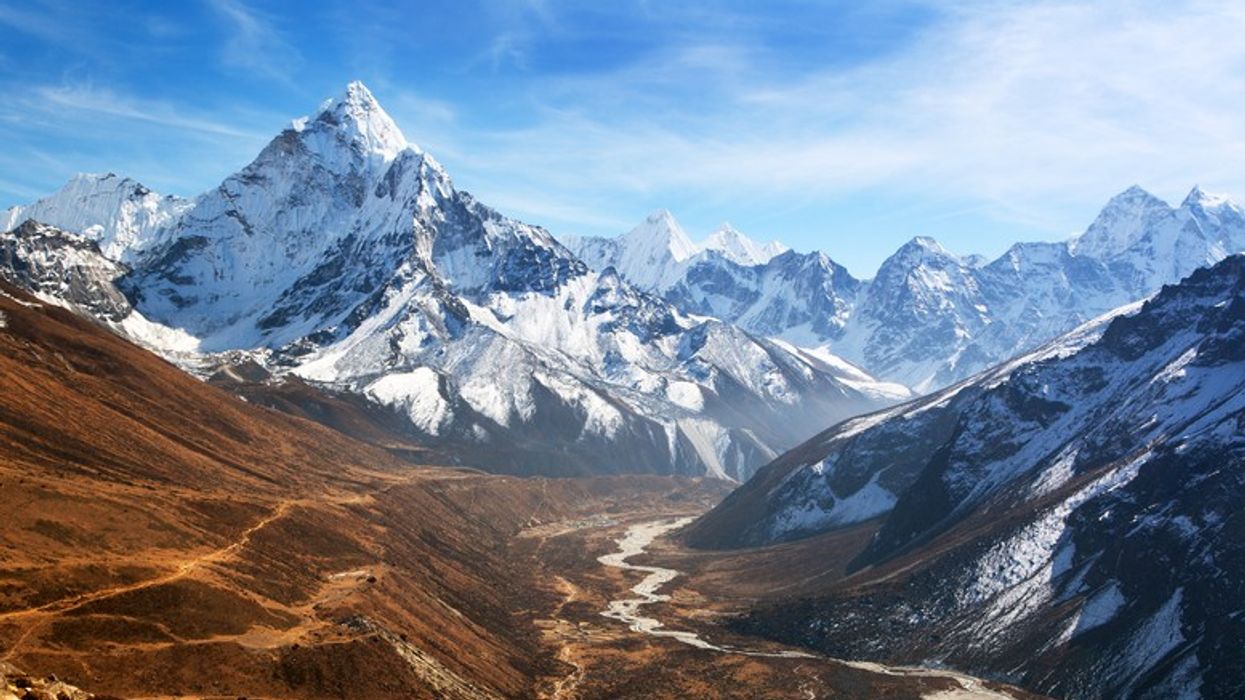A new research warns that a 3-degree Celsius increase in global warming could plunge 90 per cent of the Himalayan Region into a prolonged drought.
The study, led by researchers at the University of East Anglia (UEA) in the UK, emphasises the severe consequences of climate change, urging the need for immediate action to adhere to the temperature goals set by the Paris Agreement.
The worst part is that the Himalayas are the source of fresh water, with the glaciers resulting in the main rivers of the Indian subcontinent.
Renowned as the 'Third Pole,' it holds vast freshwater resources crucial for agriculture and millions of people across Asia. Surface water in the Himalayas replenishes groundwater, playing a pivotal role in the region's water dynamics and sustainability.
Impact on the Himalayan region
The findings indicate that if global warming reaches 3 degrees Celsius, an alarming 90 per cent of the Himalayan Region is poised to endure a drought lasting over a year. The repercussions of such a scenario extend beyond environmental concerns, affecting communities, agriculture, and natural ecosystems.
Role of Paris Agreement goals
Adhering to the temperature goals outlined in the Paris Agreement, specifically limiting global warming to 1.5 degrees Celsius, could mitigate these risks. The research highlights that 80 per cent of the increased human exposure to heat stress in India, for instance, can be averted by aligning with the Paris Agreement's ambitious targets.
Role of the Himalayas in the Indian subcontinent
The Himalayan ranges serve as the source for numerous rivers, surrounded by dense forests. These mountains act as a colossal water reservoir for the northern rivers of India which extend to Bangladesh, Nepal, Bhutan, and Pakistan.
Abundant rainfall, extensive snowfields, and vast glaciers nourish the major rivers. The snowmelt in summer ensures a continuous water supply, making these rivers perennial. These Himalayan rivers, including the Ganges, Brahmaputra, Indus, and Zanskar are vital lifelines for northern India.

Global warming escalation and human exposure
The study encompassed eight countries, including India, Brazil, China, Egypt, Ethiopia, and Ghana, assessing the escalating risks associated with each additional degree of global warming. It revealed that limiting warming to 1.5 degrees Celsius offers significant benefits.
For instance, exposure of agricultural land to severe droughts exceeding one year is reduced by 21% to 61% across the studied countries.
Biodiversity and natural capital at risk
India, in particular, faces a notable reduction in pollination, halving at 3-4 degrees global warming compared to a quarter reduction at 1.5 degrees. Moreover, the research emphasises that limiting warming to 1.5 degrees allows a more substantial portion of the country to serve as a refuge for biodiversity, in contrast to a mere 6 per cent at 3 degrees.
Economic and societal implications
The economic damages associated with sea-level rise are projected to rise in coastal nations, but the pace would be slower if warming is limited to 1.5 degrees Celsius. The researchers underscore the need for intensified efforts to reduce global warming, expressing concerns that existing global policies could result in a substantial 3 degrees Celsius of warming.
Urgent action required
The research's overarching message is clear – urgent action is required to combat the escalating risks posed by global warming. As the Himalayan Region faces the spectre of prolonged droughts, the study calls for a global commitment to align with the Paris Agreement's temperature goals. The findings underscore the need for a harmonized approach to climate change mitigation and adaptation, particularly in vulnerable regions.
Restoration for resilience
Study co-author Jeff Price emphasises the role of ecosystem restoration, highlighting its potential to combat climate change effects and absorb carbon from the atmosphere. The restoration of ecosystems to their natural state, especially if warming can be limited to 2 degrees Celsius or less, not only addresses environmental concerns but also restores the natural capital of these areas.




